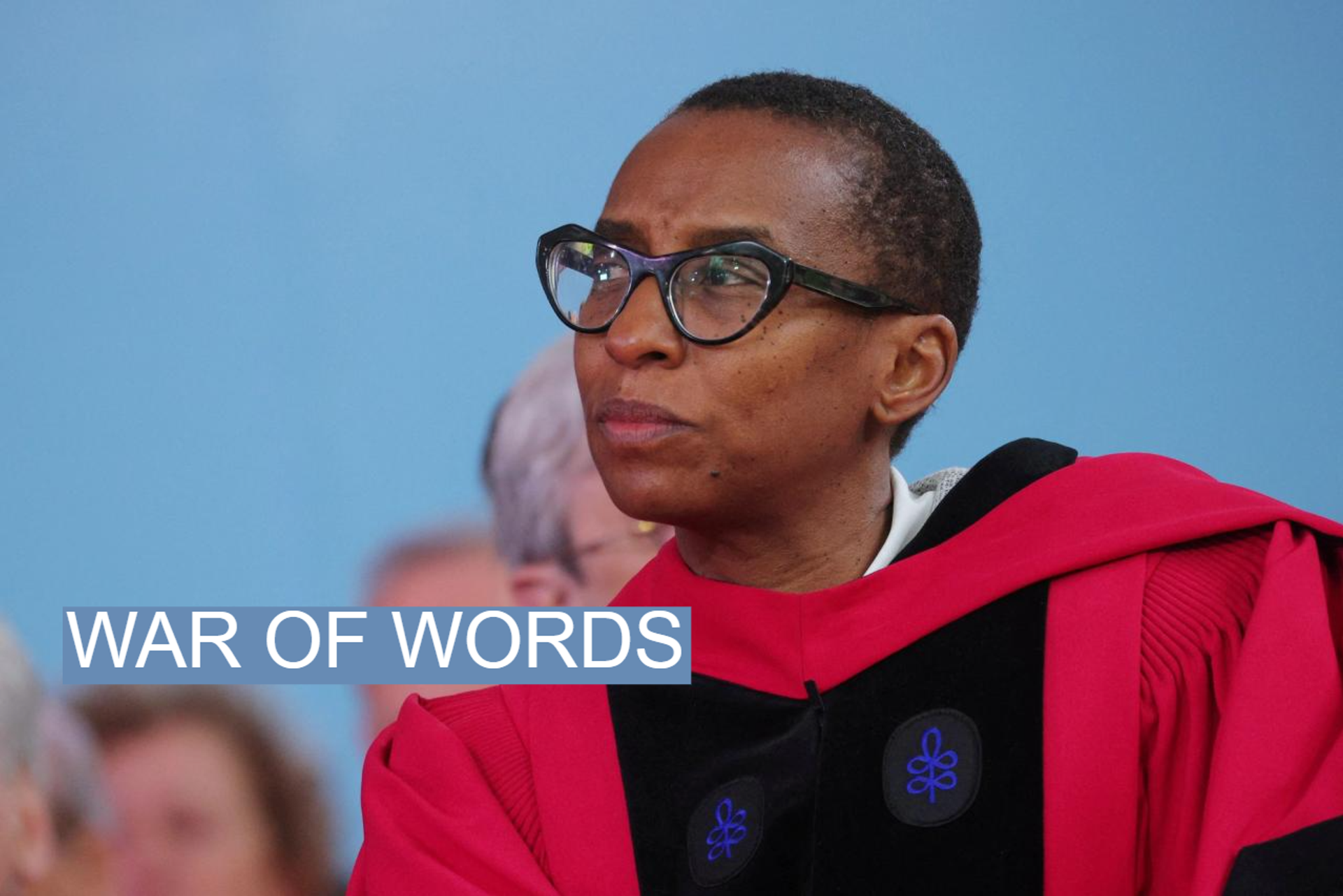The News
Harvard University’s governing body on Tuesday defended President Claudine Gay over her remarks at a controversial Congressional hearing on the rise of antisemitism on campuses.
Pennsylvania State University President Liz Magill resigned just days ago after she testified at the hearing that it was a “context-dependent decision” when asked whether “calling for the genocide of Jews” violates Penn’s code of conduct.
As the West grows deeply divided over the Gaza war, college campuses have become the epicenter of geopolitical tensions, igniting a debate on how to balance free speech rights with punishing hateful rhetoric.
SIGNALS
The “institutional hypocrisy” of universities
There is a “double standard” when it comes to free speech on campuses when it is “especially hurtful to Jews,” writes the New York Times columnist Bret Stephens. Some of the same universities at the hearing have been quick to reprimand faculty for sharing controversial views — such as a Harvard evolutionary biologist who defended biological sex and binary genders, and the MIT academic who questioned diversity trainings. Stephens says that reaction is lacking for those who flame antisemitic rhetoric, and called on universities to acknowledge their “institutional hypocrisy.” The conservative columnist opined that campuses should either allow all controversial speech on “incendiary issues” or ban all controversial speech, “including calls to wipe out Israel or support homicidal resistance.”
Choosing optics over free speech
Universities are “acting a lot more like corporations” while reacting to contentious political and social issues, Alex Morey, the director of a campus rights advocacy group, told Vox. They worry more about how the public will react to their position on these issues, rather than working to “foster debate and discussion” on campus, he said. Administrators will inevitably grapple with a situation like the Israel-Hamas war where “there is no ‘right’ side.” This is further complicated by the fact that many student organizations see it as the university’s responsibility to make them feel protected on campus, often by silencing opposing viewpoints. Morey argues that universities need to teach students about the value of free speech, how to recognize rhetoric from violence, and to hear out those they disagree with. A Harvard Crimson editorial echoed the argument in an op-ed defending Gay, writing that “the right to speak freely enjoins us to speak well” and encouraging students to “familiarize themselves with multiple perspectives.”
Banning student groups is the “wrong response”
Student groups should not be banned even if some of them upset communities on campus, Dov Waxman argues for Haaretz. Bans are a blatant violation of the First Amendment, Waxman writes, which is a path that “should be avoided at all costs.” He distinguishes between students engaging in potentially dangerous behavior like doxxing and those who chant phrases with “more ambiguous” meanings that could be interpreted by one side as empowering, and the other as antisemitic.


